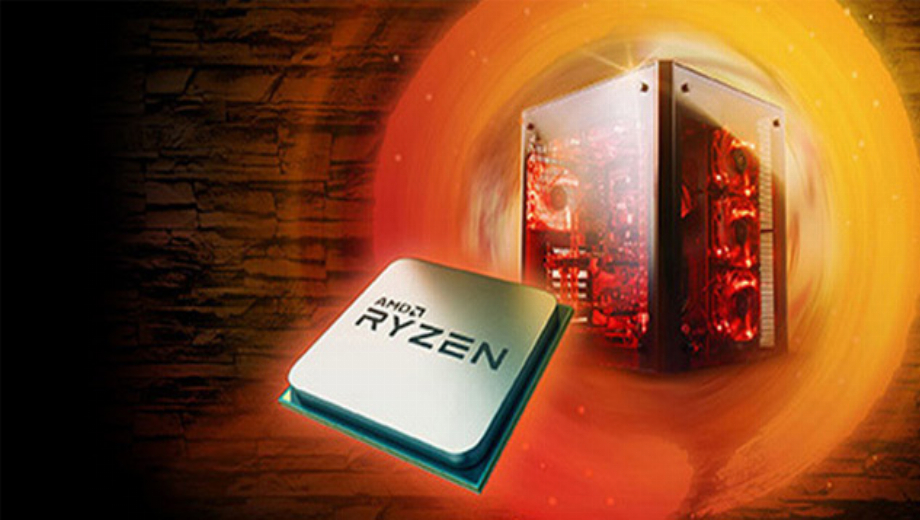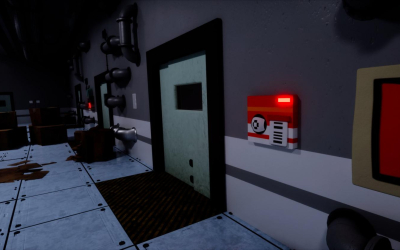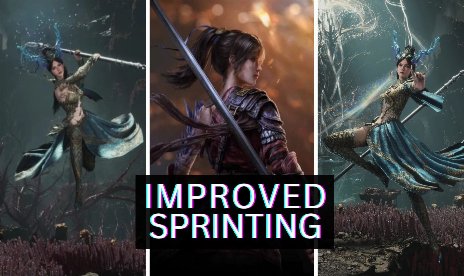Why Ryzen gaming performance isn’t a problem

With AMD’s Ryzen launch earlier this month, much has been said about the chips’ multithreading abilities, their overclocking, their price and performance in all sorts of benchmarks and settings. The one topic that has the most people wagging their tongues though, is gaming performance, specifically at 1080P.
While that’s understandable, considering that’s the resolution that most people play at and high-end chips are bought by a lot of gamers, the fact that Ryzen didn’t quite offer as much bang for buck as Intel’s top of the line processors isn’t as much of a concern as people have made out.
There are a number of reasons why AMD didn’t quite match up to Intel and all of them are reason enough to still consider Ryzen hardware the next time you upgrade.
The difference wasn’t that great
For starters, the difference in gaming performance between high-end AMD Ryzen chips and high-end Intel chips, wasn’t that great. Yes it was there, but we’re talking a few percent points in the majority of cases and at most, we edge towards 15 percent. While that is a reasonable figure, it’s not quite the earth-shattering figures we might have expected in the past. Typically Intel destroys AMD on performance, but these sorts of figures don’t paint as terrible a picture as some would have you believe.
Yes the difference is there, but it’s not catastrophic by the numbers. When you look at why they might be there at all though and what we can expect in the future, they’re even more inconsequential.
Muticore, multithread focus
Much like AMD’s last big CPU architecture, the 28nm Excavator core introduced in 2011, AMD’s big focus with the Zen release has been multicore performance. That’s why its top of the line Ryzen 7 1800X CPU packs in eight cores and 16 threads thanks to its simultaneous multithreading features and that’s why it performs so well in software like Photoshop and Handbrake, where multiple threads can be drawn on at one time by the software.
However while weaker single core performance in 2011 was a real problem for Excavator, today it’s not such a big deal. More software than ever is supporting of multiple threads and as we move towards newer APIs like DirectX12 and Vulkan for gaming, we’ll see more games start to support it too.
That focus on multiple cores and multiple threads is also one of the reasons that single cores can’t be clocked as highly on the new Ryzen chips. If you have eight cores with 16 threads all running at close to 4GHz, it’s not too surprising you can’t take them much higher. When turning off multi-threading, overclocking and single core performance improves. It’s likely that in coming tests, switching off cores will yield even better results.
It could also be that lower-end, quad core, eight thread chips, could perform better in games too.
Lack of optimization
Although we will take this one with a mild pinch of salt, AMD has said that it is still sending out developer hardware to game makers to help optimize for Ryzen. It claims that because of years of Intel optimization for games – it has been dominant gaming platform for over a decade – games just aren’t built with AMD chips in mind. That may sound like marketing nonsense, but it does have some basis in fact.
Every time new games are released both AMD and Nvidia release driver updates so that GPUs are optimized for the new titles and certain games run better on Nvidia or AMD hardware, often depending on affiliations. Something similar could be happening with Ryzen in terms of software and motherboard BIOS releases, so it’s worth keeping your eye out over the next few months to see if software updates to popular games and platforms yield improved results with Ryzen.
Ryzen’s top end chips aren’t for 1080P gaming
As much as we can expect performance improvements in the coming months though, it’s important to point out that Ryzen’s top end chips are cheaper than Intel’s by a long shot, but they still cost close to $500. If you are spending $500 on a CPU alone, then you probably have a monitor that’s much more capable than 1080P. Even if it’s 1440P, you’ll also be running a graphics card capable of those higher resolutions, which means your gaming is going to be more GPU bound.
In those scenarios, Ryzen has shown itself just as capable as Intel’s chips, which means even if Ryzen isn’t as good at 1080P gaming, as we all start to transition to higher resolutions, does it really matter?
Did Intel pay reviewers?
This is more of a rumor than anything and seems rather unfounded. There have been a couple of editors who said Intel got in touch to request they talk to Intel before posting their Ryzen reviews, but nobody would be foolish enough to follow through with that in the big publications.
Intel could be engaged in underhanded tactics, but there is enough of a spread of Ryzen reviews to suggest that there isn’t much, if any foul play going on, so we’ll leave this point at the wayside for now.
The future looks bright
All in all, with optimizations coming down the road, Intel not having a legitimate response to Ryzen until later this year and its Cannonlake designs not incorporating the expected die shrink, it could be that Ryzen is the most forward thinking processor choice for new buyers right now. Gaming performance is likely to improve in the months and years to come and Ryzen has plenty of headroom for future iteration.
AMD is also promising that the AM4 platform will remain relevant until at least 2020, so buyers today can expect their system to be easily upgradeable over the coming years.
With all of that in mind, would you guys reconsider Ryzen as your next CPU upgrade?





![SnowRunner v40.0 (+7 Trainer) [Baracuda]](https://9588947a.delivery.rocketcdn.me/wp-content/uploads/2026/02/Snow-Runner-01-464x276.jpg)

![Titan Quest II (+26 Trainer) [FLiNG] – Update February 2026](https://9588947a.delivery.rocketcdn.me/wp-content/uploads/2025/09/Titan-Quest-II-01-464x276.png)


























